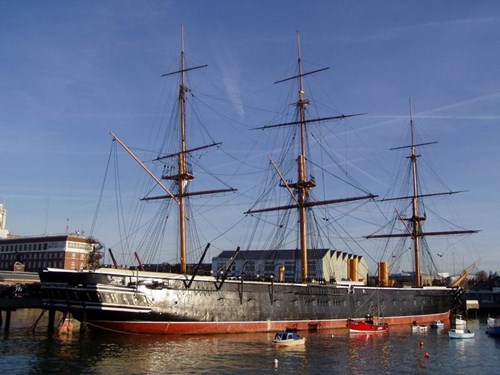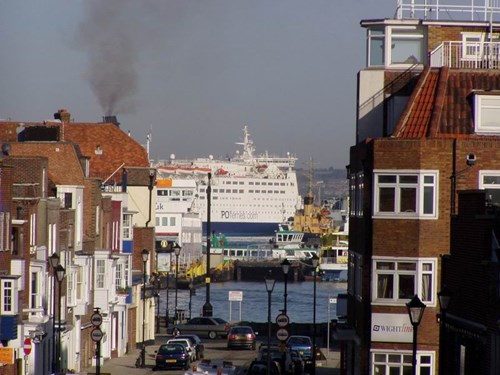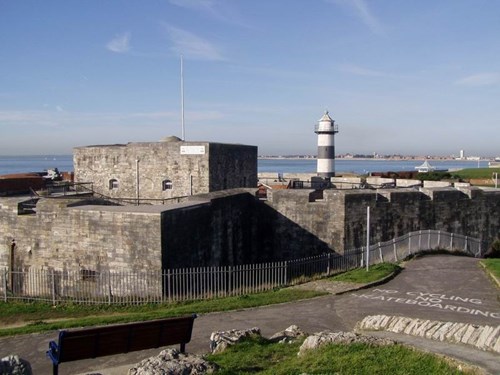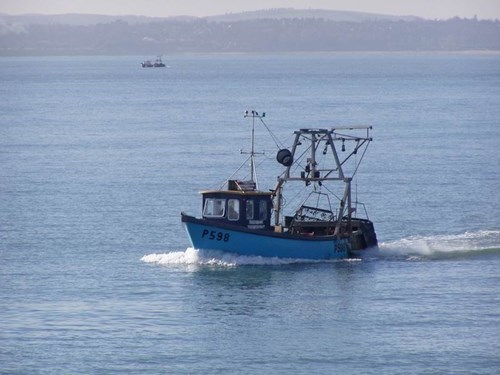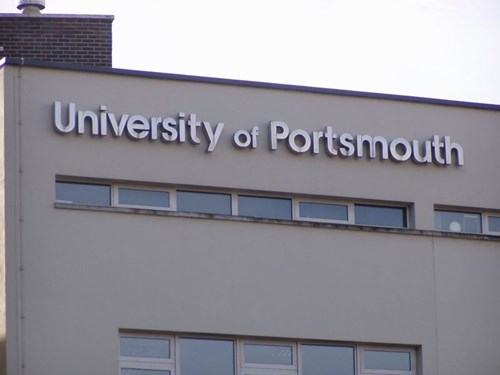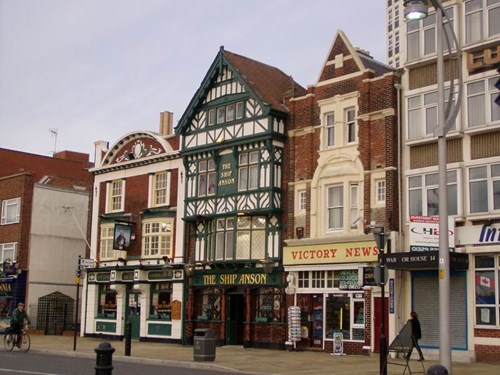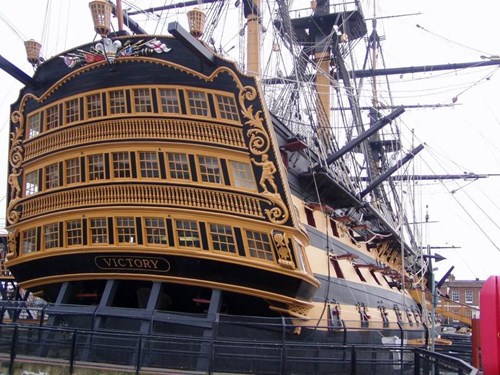Associate Professor Vrana, what fascinated you so much about science that you decided to pursue a career as an environmental scientist?
I've been interested in chemistry since elementary school, so I decided to study it. In 1989, I started at the Faculty of Chemical Technology at the Slovak Technical University in Bratislava. My thesis supervisor, physical chemist Professor Štefan Baláž, now based in the USA at the Albany College of Pharmacy and Health Sciences, led me to research the environment and health. Professor Balazs pioneered the study of quantitative structure-activity relationships (QSAR) between the structure of chemicals and their biological effects. After 1989, it became clear that many environmental burdens in Czechoslovakia also negatively affected human health. Professor Balazs asked me to help him investigate the relationship between the structure and microbial degradability of one group of pollutants, the so-called polychlorinated biphenyls. That was the beginning of my journey as an environmental scientist. And, frankly, I never imagined this would be my path.
What was your field of study in college?
I studied food chemistry, which was an interdisciplinary study called Biochemical Technology. We took some courses at the Faculty of Chemical Technology of The Slovak University Of Technology and others at the Faculty of Science of Comenius University. And among the subjects, I studied at the Faculty of Technology were, for example, brewing and wine production technologies. If I hadn't become a scientist, I would have stayed working in the food industry. After graduation, I studied fermentation technology and would have gone into food additive manufacturing in the brewing or winemaking industry. I still have a connection to winemaking - we have a small vineyard in the family and make our wines, which is why I previously considered a career as a professional winemaker. Incidentally, I'm still drawing on my university studies to work in the family vineyard and make wine. Laugh.
But beer and wine production didn't tempt you, and you started your doctoral studies. What was your dissertation topic?
My supervisor's enthusiasm for environmental research guided me away from classical biotechnology. I went on to study the factors that influence PCBs' microbial degradability. I also pursued this topic while writing my Ph.D. thesis at the Faculty of Chemical Technology and Engineering, The Slovak University of Technology, in Bratislava. Polychlorinated biphenyls are an exciting group of 209 structurally similar substances. They differ in properties, environmental fate, toxicity, and biodegradability due to the number and location of chlorine atoms on the biphenyl skeleton. They are interesting as a model object of research. In the 1990s, removing them biotechnologically from contaminated sites, such as the former factory, for their production in Strážské in eastern Slovakia was possible. Unfortunately, their resistance to biodegradation (persistence) is enormous, and they are still present at many sites decades after their production was prohibited.
You've lived for several years abroad. And from your story, it sounds like a great adventure! How did it all start?
After finishing my university studies, I wanted to continue in science, but I discovered that it would not be difficult in Slovakia. It was the 1990s, a period of economic depression and a politically complicated time. At the end of my Ph.D. studies, Professor Balazs was offered a professorship at the University of Minnesota, and I completed my dissertation under his supervision remotely. After Professor Balazs went abroad, his working group also broke up, and its members ended up abroad. I was curious about how science is done in other countries and wanted to gain new knowledge and experience. I had desired to go overseas during my engineering studies, but in the 1990s, it was challenging to do so. Thanks to my supervisor's international contacts, I attended several international conferences during my doctoral studies. The first was a trip to Switzerland, and it was great! First time abroad! We went as a group, professor and Ph.D. students, all squeezed together in one Felicia. Laugh. Then I was able, as part of a NATO-supported project, to go to Canada for a two-month internship at the Canadian Centre for Inland Waters near Toronto. It was a very intense experience. But I was not such an adventurer to stay there. I also felt a bit of a language handicap. But it doesn't matter; my life took me to Leipzig, Germany.
And why Leipzig?
My supervisor collaborated with Professor Schürman at the Helmholtz Center for Environmental Research (UFZ). And I was lucky because they were looking for a postdoc on the fate of toxic substances in the environment. At that time, there was a lot of emphasis on POPs (Persistent Organic Pollutants), and I had already had experience with similar research in Slovakia.
When did you go to Leipzig? And was it an easy decision?
I left in 1998. I was happy to go from Slovakia because the situation in the country didn't look good. Fortunately, the political regime changed, the much-needed reforms came, and everything took a better direction, but by that time, I was already in Leipzig. If I had stayed in Slovakia a little longer, I might never have left.
How was your life in Leipzig?
I went to Leipzig with my wife, who was then pregnant with our first son. Both my sons were born in Germany, where we lived together for 4.5 years. At the Centre, they planned to keep my position for three years, then the research extended, and I stayed another year and a half. We were happy in Leipzig. The city was flourishing, and the Helmholtz Center was a new center for applied environmental research. I still work with many colleagues from Leipzig today, and we have remained close friends.
Moving from Czechoslovakia to Germany wasn't easy. Did you like the city itself?
Leipzig is an exciting city that systematically repaired its monuments after the regime change in 1989. It also invested in architecture, transport, science, and research. And the attractiveness of the city, in general, has grown enormously. The city center is not very big, in some ways it reminds me of Brno, people live near large parks and nature. Leipzig was, and therefore still is, a great city.
And what exactly did you do at the Helmholtz Center?
The issues I worked on were innovative methods for monitoring environmental pollutants. And we were developing a new passive sampling technique as an effective monitoring method that would be low-cost and simultaneously monitor pollutants. We worked on projects related to surface and groundwater pollution. Leipzig and the surrounding area have been a center of the chemical industry for more than 100 years, producing a wide range of chemicals and phytochemicals. The local factories were bombed during the war, and chemicals got into the surrounding area and groundwater. Plus, in the pre-1989 era, nobody cared about the environmental safety of chemicals. After all the events in and around Leipzig, industrial sources and mining polluted the surface and groundwater. For example, I also investigated how to remove chemicals from groundwater. We researched the extent of surface water pollution in the vicinity of Eisleben in the Mansfeld region, where, coincidentally, the great church reformer Martin Luther was born and died. The town had been a mining town since the Middle Ages, surrounded by copper mines (e.g., Luther's father was also a miner). The processing of the copper slate produced various organic and inorganic pollutants in large quantities, which were washed as fine sludge into the rivers and deposited at the bottom of the water reservoirs. There, one can find, figuratively, the entire periodic table of chemical elements and a wide variety of their compounds.
And what happened after Germany?
I had the opportunity to stay in Leipzig, but I was still young enough and wanted to try something else. Luckily, I was offered a job at the University of Portsmouth in South England. Colleagues were submitting a new European project on a research topic close to my heart. I was in contact with them, and after the project was approved, the project coordinators suggested I apply for a researcher position. It worked out, and I was offered the job in the three-year project.
How did you manage to move again with two young children?
Moving was a big adventure. When I applied for the position, I realized that moving could be challenging. Laugh. First, I moved my wife and two young children back to Slovakia and went alone to England to find housing for all of us. We had all our stuff in Germany all the time because we needed to figure out where to move it. I found a removal company on the internet that suited our needs, and they moved all our possessions from Leipzig to a depot near Berlin, where they stayed for a while before I knew where we would live. Within two weeks, I found a place to live in Portsmouth. We had a typical small British house just fifteen minutes by bike from the beach. I used to cross the harbor by boat to work every day. It would have been more than 30 km driving around the whole port. On the boat, it was only two kilometers.
It sounds like a story out of a movie.
And it was true. Laugh. England was great. My youngest son lived through his early childhood in Portsmouth and then missed England for a long time.
And what about moving on to England?
I settled in, planted a flower bed, and waited for my wife and sons. Laugh. But when they arrived in England, the furniture still wasn't there. The shipping company came a month later. And so we were living in a camp, only under a roof. Laugh. And I still remember the great joy of our children when they saw their toys after more than two months. It wasn't always easy with our travels, and I admire my staying with me.
Where did you like it better - Leipzig or Portsmouth?
It's hard to compare. Each country has its pros and cons; everywhere, there is something to admire and learn something new. The Germans are less friendly at first, the English more jovial. With Leipzig, located in the east of Germany, we share a similar post-war history and life experience, so my colleagues from Leipzig were a little closer to me than those from Portsmouth. But I have good friends in Germany and England. And I'm very fond of history, especially medieval history. We used to go on train trips around the south of England and explore the backwaters of history.
What did you work on in England?
The work was exciting. With eight partners from all over Europe, we developed a sampler that we managed to patent. In England, we focused on sampling regulated organic pollutants, such as persistent pesticides on the surface and seawater. And we sampled right in the Royal Navy harbor in Portsmouth, where a British aircraft carrier was docked at the time; I think it was HMS Invincible. The port is very contaminated; big ships are being repaired there, and it's a busy transport hub. In addition, during the Second World War, the city of Portsmouth and its harbor were frequently bombed by the Luftwaffe, so oil was repeatedly spilled into the sea, and unexploded ordnance was still found in the port.
And did you want to stay in England or move on?
As much as my family liked England, we missed central Europe and our family. Plus, my wife wanted to start work after maternity leave, and with young children in a foreign country where you don't have a background, it's hard to have both parents working. Moreover, Slovakia has been in the European Union since 2004, and this promises a brighter tomorrow. In 2006 we decided to return to Slovakia.
Where did you put down roots after returning to your homeland?
After I arrived, I looked for various jobs in the industry, but I still wanted to work on water and pollution issues. Eventually, I ended up at the Water Research Institute in Bratislava in the National Reference Laboratory for Water. I worked in an accredited laboratory, monitoring surface and groundwater quality throughout Slovakia and developing methods for determining regulated pollutants. I also tried to get my research projects, which were quite successful. For example, we cooperated with Austria, investigating the quality of water in the Danube. We helped reconstruct Bosnia and Herzegovina after the war and trained our colleagues there to have sufficient expertise in implementing European water legislation. It was exciting to work. But after a while, the routine grew, and I started to miss the space for my research. I worked in Slovakia until 2014, and then we moved to Brno.
So RECETOX?
Yes, RECETOX. At an international conference in Prague in 2009, we met Professor Jana Klánová, who was looking for scientists with expertise in new research areas. It was perfect timing. I missed science, the intense contact with the scientific world, and the university environment. Word got around, and I have been commuting to Brno every week since 2010 to teach and engage in research activities at RECETOX. I enjoyed working with the students on their final theses. I also threw myself into research and publishing activities, and gradually I was in Brno more and more until we moved to the south of Moravia entirely with my family. And we are very happy here.
And what is the current topic of your scientific work?
My team and I work on several thematic areas. One priority is characterizing the fate and risks of pollutants in the aquatic environment. We are developing methods to assess how much aquatic organisms are exposed to trace organic contaminants in surface water, wastewater and sediment. Although it appears that humans do not come into direct contact with pollutants from rivers, this is a misconception. For example, fish living in water take up contaminants, and we eat them in fish flesh.
Why did you choose to research contaminants in water?
I have always had a relationship with nature and love the sea. I would have been interested in air research as well, but the topic of water pollution came to me so gradually, and I took it on as my own.
Associate Professor Brana, you've traveled extensively. In retrospect, how do you see your travel and scientific adventures?
In history, it was pretty standard that every apprentice, to become more experienced in their craft and become a master, had to compulsorily go abroad for a few years to gain new knowledge. And in science, it is no different. Experiencing research abroad and experiencing other cultures is incredibly rewarding, and I recommend it to everyone. It's never too late!
Where is it going next?
Laugh. Nowhere! I hope it's Brno, and RECETOX is already my destination.


